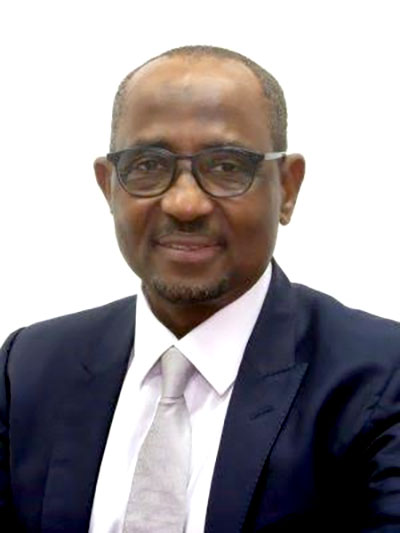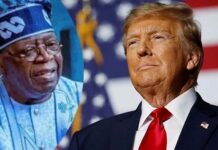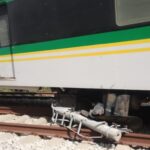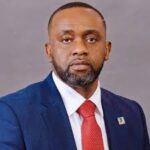By Dunni Aladefa
Leadership is a demanding vocation requiring in the first instance, knowledge, vision and capacity.
In addition to the qualities outlined above, an individual aspiring to leadership must possess, nerves of steel, foreberance and empathy, for leadership challenges the entire spectrum of an individual’s physiological candidate psychological composition.
It is trite to remark that every society, organization or indeed, every gathering of human beings is as strong or effective as it’s leadership. Where leadership is defective or to put it more precisely, where the leadership if such conglomeration of individuals is weak and ineffectual, such gathering is reduced to crisis and confusion, and eventually collapses.
Essentially, it is safe to say that everything pertaining to human centred organizations rises and falls on leadership.
The Nigerian Midstream Downstream Petroleum Regulatory Authority (NMDPRA ) is one organization whose fortunes have had to depend on the quality of its leadership. Created in late 2021 specifically in August of that year by the Petroleum Industry Act (PIA) 2021 to subsume the downstream functions of the Petroleum Products Pricing Regulatory Authority (PPPRA ), Department of Petroleum Resources (DPR) and Petroleum Equalization Fund (PEF), the agency gas established itself as one of the most visible and effective regulatory agencies in Nigeria.
The NMDPRA ‘s mandate as spelt out by the PIA include:
1. Regulating midstream and downstream petroleum operations including technical, operational and commercial activities; 2. Ensuring efficient, safe, effective and sustainable infrastructural development of midstream and downstream petroleum operations;
3. Promoting healthy, safe, efficient and effective conduct of midstream and downstream petroleum operations in an environmentally acceptable and sustainable manner;
4. Promoting a competitive market for midstream and downstream petroleum operations;
5. Promoting the supply and distribution of natural gas and petroleum products in midstream
and downstream petroleum operations and the security of natural gas supply for the domestic gas market;
6. Ensuring compliance with applicable laws and regulations governing midstream and downstream petroleum operations;
7. Ensuring crude oil supply for domestic refineries;
8. Determining, administering and ensuring the implementation and maintenance of technical
standards, codes, practices and specifications applicable to midstream and downstream petroleum operations pursuant to good international petroleum industry practices;
9. Implementing government policies for midstream and downstream petroleum operations as
directed by the Minister and in accordance with the Act;
10.Promoting, establishing and developing a positive environment for international and domestic investment in midstream and downstream petroleum operations;
11.Ensuring strict implementation of environmental policies, laws and regulations for midstream and downstream petroleum operations; and
12.Developing and enforcing a framework on tariff and pricing for natural gas and petroleum This responsibilities seemed on the face of it, too much of an assignment for one entity to undertake given the complex interplay of interests in the Nigerian oil and gas industry.
Not a few oil industry watchers and experts worried over this situation. But they needn’t have worried because it seemed that President Muhammadu Buhari who then presided over the affairs of the nation had given careful thought to the matter by his decision to appoint Engineer Farouk Ahmed as Chief Executive Officer (CEO) of the NMDPRA.
Engr. Ahmed came to the job prepared. Some might even say over prepared given the tons of experience he has garnered in his 38 years sojourn in the oil and gas sector in Nigeria. Before his appointment to the leadership of the NMDPRA on September 29, 2021, he had held key positions at the topmost hierarchy of key organizations abd entities in the petroleum sector. These include:
° Manager, Crude Oil Marketing Division, NNPC
° Executive Director, Commercial, Pipelines and Products Marketing Company(PPMC)
° Managing Director, NIDAS Marine Ltd, an NNPC/ DAWOO-Korea Joint Venture company engaged in business waterborne transportation of petroleum products
° Executive Secretary, PPMC,
° Managing Director, PPMC and
° Special Adviser on Downstream to GMD of NNPC, late Dr. Maikanti Baru.
His rich professional background complement by his equally sound educational background arising from his studying at schools in Nigeria and abroad like the Sokoto Teachers College, Kaduna Polytechnic, Gulf Coast Community College, USA, and Southern Illinois University Carbondale, USA, equipped him with the needed technical and administrative skills, which gave helped navigate the tortuous terrain of petroleum sector regulation.
Not content with knowledge acquired from these institutions, he went ahead to attend courses at the International Petroleum Exchange, UK, New York Mercantile Exchange, College of Petroleum Studies, Société Financiers Privee, Switzerland, New York Institute of Institute of Finance, Oxford Institute of Petroleum Studies, UK, and the CWC Consulting, Houston, Texas. These are in addition to the many seminars and conferences he has attended around the world.
Together, these have imbued him with a clear perspective on the regulatory direction to steer the midstream and downstream sectors of the oil and gas industry. Events since he assumed leadership of the NMDPRA has shown him to be a visionary, perceptive and result oriented administrator after the fashion of his forebears of the Sokoto Caliphate particular the late Sarduana of Sokoto, the astute and dogged former Premier of the then Northern Region.
As a true blueblood, Engr. Ahmed evinced much dignity and calmness in the face of mounting challenges in the sector he regulates.
He has succeed through his genius for innovation, to position the NMDPRA as a respected regulator not only within the oil and gas sector but of all regulatory agencies and institutions whether in the public or private sector. Since 2021 when the NMDPRA came on board, sanity has been imposed on the the supply and distribution of natural gas and petroleum products in midstream and downstream petroleum operations as well as in the area of the security of natural gas supply for the domestic gas market.
Such is the impact Engr. Ahmed’s leadership has had on the NMDPRA that in January this year, Gbolahan Elias, a leading authority on Mergers and Acquisition, in an article titled, “A general introduction to Energy Mergers & Acquisitions in Nigeria”, noted of the agency:
“The…NMDPRA are aggressively churning out new regulations, guidelines and information circulars to operationalise several of the innovative provisions of the PIA. These regulations range from simple administrative matters to complex operational issues with significant impact on the oil and gas sector.
An area that has witnessed the most regulator activism has been environmental protection and compliance. Players in the industry are advised to note these emerging obligations, whether they are protectionist in nature (as in impact assessment obligations) forward looking (risk registers and mitigation) or remedial (abandonment, decommissioning and remediation obligations)”.
For Engr. Ahmed himself, he is committed to not only taking the NMDPRA to the very top but is more importantly dedicated to task of ensuring that the Nigerian government and stakeholders in the midstream and downstream sector, benefit maximally from their investments in the sector.
In December 2023, the NMDPRA Authority Chief Executive (ACE) as he is officially known, assured the world that Nigeria can attract $575 billion in investments. Engr. Ahmed speaking through Dr. Mustapha Lamorde, Executive Director of Health, Safe and Environment Division of the agency at the United Nations (UN) Climate Change Conference( COP 28), said the plan is possible through the NMDPRA’S Industry Sustainability Initiative (ISI).
Breaking down opportunities for investment per sector, he said $272 billion is in power, $127 billion in infrastructure, $96 billion in oil and gas processing optimisation, $80 billion in industry and $2.8 billion in clean cooking noting that making this possible will come down government ‘s commitment and it’s collaboration with the private sector through technological innovation.
Whilst the ISI incubates, Engr. Ahmed and his team at NMDPRA are unlocking investments in gas by determining the appropriate tariff methodology and setting cist benchmarks for operations in the sector the agency regulates. Recently, the agency announced the establishment of the year 2024 Domestic Base Price and applicable wholesale price on natural gas for the strategic sectors.
This occasioned an increase in the price of natural gas for the strategic domestic sectors including power generation companies by 11 percent.
The increased gas pricing is expected to spur gas suppliers to bring on-stream gas from higher cost fields. Without significant new gas development, the shortfall in gas supply by 2030 is expected to be as high as 3 BCF per day, worsening gas challenges for the power sector, and severely affecting facility utilization for commercial, GBI sectors, and export markets.
It is clear from all of this, that a new dawn has emerged for the midstream and downstream sectors of the oil and gas industry in Nigeria. With Engr. Ahmed in the saddle, the sector will witness a consolidation of the gains recorded in the post-PIA era.










